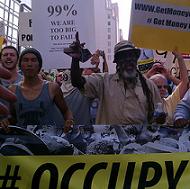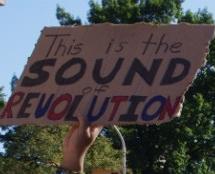On July 1, 2002, US planes bombed an Afghan wedding in the small village of Deh Rawud. Located to the north of Kandahar, the village seemed fortified by the region’s many mountains. For a few hours, its people thought they were safe from a war they had never invited. They celebrated, and as customs go, fired intermittently into the air.
The joyous occasion however, turned into an orgy of blood that will define the collective memory of Deh Rawud for generations.
It was reported that the US air force used a B-52 bomber and an AC-130 helicopter gunship in a battle against imagined terrorists. According to Afghan authorities, 40 people were killed and 100 wounded (The Guardian, July 2, 2002). Expectedly, the US military refused to apologize. read more




